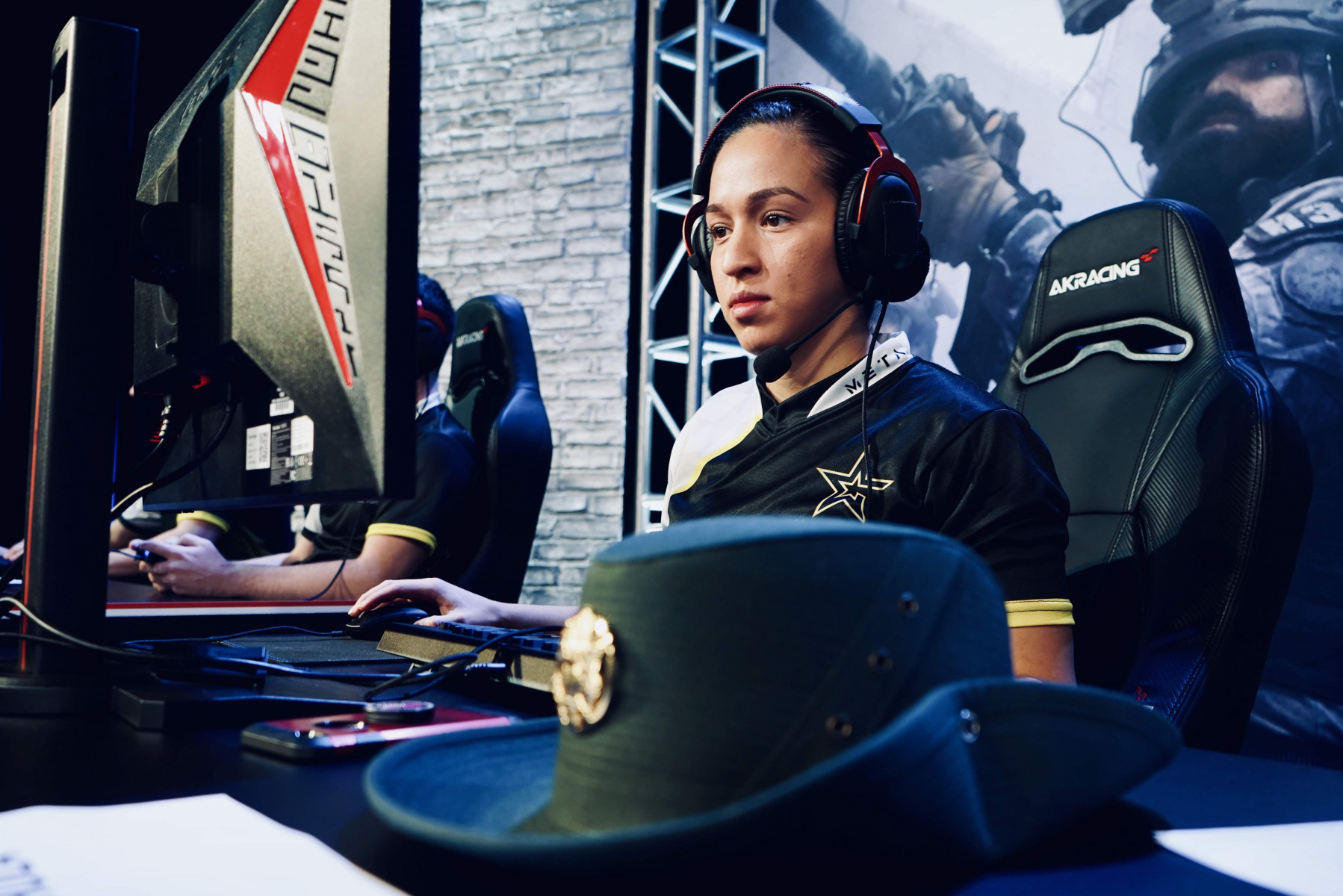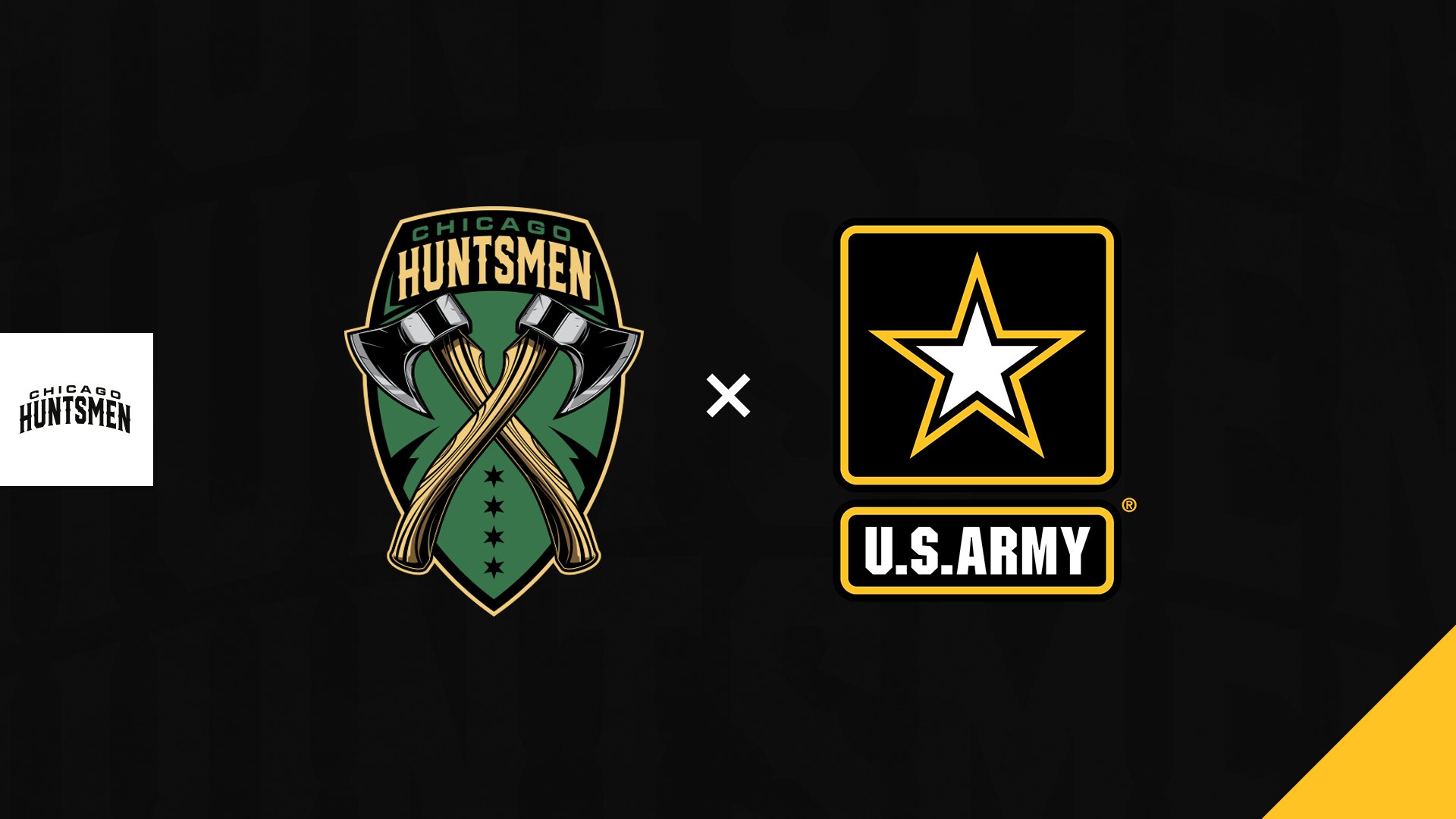Entertainment and the military have always existed hand-in-hand. The “heroics” of war have been highlighted in film, both as fictional, glorified images of battle, and as prominent recruiting tools in the 1940s, 1950s, and 1960s.
In the 1980s, paid commercials about the Army, Navy, Air Force, and Marines would break up football games. The movie Top Gun helped the military receive over 20,000 applicants, primarily in the Navy.

Military advertisements were carefully targeted toward potential recruits. Men who played football could run and jump. Their athleticism was compared to the physical attributes of soldiers in war. They could ‘hit the deck’ when necessary. Sports Illustrated showcased ads pinpointing weightlifters because they could easily carry ‘an 80-pound backpack and a weapon’.
It’s no surprise that military recruitment has infiltrated the esports industry.
“If we are going to be successful in recruiting, then we need to be where young people are—and they are operating in the digital world,” said Maj. Gen. Frank Muth, Commanding General for U.S. Army Recruiting Command in a release. “There are already thousands of current soldiers who are competitive online gamers. Now we are giving them a chance to use their talents to help us relate to and connect with other young gamers. They will have the ability to start a dialogue about what it is like to serve in our Army and see if they are interested in joining.”
RELATED: UGC extends partnership with U.S. Army Esports for second event
The military’s presence began through an expected avenue of partnerships and on-screen advertisements. Activision Blizzard partnered with the U.S. Army in a one-year agreement to help produce content for the Call of Duty League and Call of Duty Challengers. In addition, the Army became the presenting sponsor of the forthcoming Call of Duty Collegiate.
The realistic combat mechanics of Call of Duty is the perfect atmosphere to attract potential recruits, but the U.S. Army is also operating through different online titles. Recently, the Army National Guard has teamed up with World of Warcraft guild Complexity-Limit to develop content around the WoW Mythic Dungeon International (MDI).
Master Sgt. Jory Stevenson, Marketing NCOIC for the National Guard Bureau, spoke on the arrangement in a release: “Our Guard Soldiers are passionate about gaming, esports, and World of Warcraft. Partnering with Complexity-Limit not only helps us reach this unique and passionate audience but also allows our Soldiers to engage in teamwork as they continue playing WoW during these uncertain times.”
[primis_video widget=”5183″]
However, what began as a familiar content strategy soon snowballed into practices that certain voices throughout the industry have found to be questionable. Military esports teams began capitalising on the reach of platforms such as Twitch, and their methods have come under fire from those who believe the military shouldn’t be forcing recruitment methods on young and impressionable players and viewers.
The focus began to shift on the players in military esports teams instead, in an attempt to sway from blatant recruitment tactics, but the backlash has continued.
During a stream on the U.S. Navy’s official Twitch channel, Machinist’s mate First Class Andrew ‘Saltysn1pe’ Crosswhite claimed that the team was there “to show that we play video games, literally. We’re not here to recruit. That is not the point of this.”
RELATED: Complexity Gaming partners with U.S. Army
However, Navy documents strictly point out the mission of its Goats & Glory esports team: To recruit.
“Everything done on social media should be aimed at making connections between prospects and recruiters,” the Navy Recruiting Command (NRC) Twitch Guide for Streamers said. A PDF of the document that had previously been uploaded by the Navy has since been deleted but was later uncovered by Motherboard by accessing it by viewing a cached copy.
Censorship is another factor condemning the military’s influence on its targeted demographic. In July, military esports teams began banning users who began chatting about U.S. war crimes. The ACLU and other legal experts claim the censorship may have violated the First Amendment.
The instances of bans may have been a result of intentional trolling, but it’s interesting to see just how aggressive the military branches are addressing the content. Removing statements of war crimes to funnel positive recruitment messages is shady at the very least.
Activist and Twitch streamer Jordan Uhl was one of the viewers banned from the Navy’s official Twitch channel. In an interview with VICE, he stated: “It boils down to an issue of speech… if the Army wants to recruit with these modern tools and these modern platforms that are widely used by young susceptible kids, young, impressionable kids, the kids have at least a right to know what the military does and has done.”

Since then, the Knight First Amendment Institute has sent a letter to the U.S. Navy and Army regarding the banning. It states: “It is clear that the @USArmyEsports and @AmericasNavy Twitch channels are government-operated public forums for First Amendment purposes. Both channels are open to the public at large, and anyone who follows the channels can participate in the chats.”
U.S. Representative Alexandria Ocasio-Cortez (D-NY) has also made plans to file a measure that would restrict the military from using gaming and esports as a recruiting tool. The draft would keep the military from using funds of the House Appropriations bill to ‘maintain a presence on Twitch.com or any video game, e-sports, or live-streaming platform’.
It brings their methods under scrutiny and questions their ability to assess the personalities of gamers. Judging the ‘gamer’ personality and creating an attractive image through esports isn’t going to be as easy as they thought.
According to a 1978 Time Magazine article: “The military has spent a good deal of money developing personality profiles of soldiers in an attempt to learn which recruits are likely to fight well, commit atrocities or stand up to enemy interrogation.”
Gamers, particularly esports competitors, have to be expert communicators, decision-makers, and thought leaders. These qualities are perfect targets for the military to pinpoint in recruiting messages, and many are claiming their methods are predatory.
In a digital age, transparency is key, and we have developed an intense ‘call-out’ culture to hold figures accountable. The military is the latest group to realise that, and likely that’s a positive.
[maxbutton id=”5″ ]
